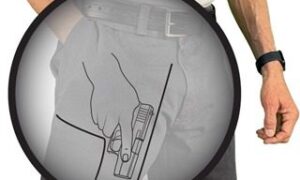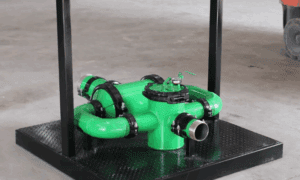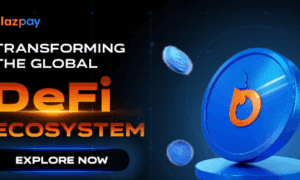Technology is changing our lives in ways we could’ve never imagined. Things that once sounded like science fiction — like regular people traveling to space, editing human genes, or tracking their health from a smartwatch — are now becoming reality.
It’s honestly amazing how fast the world is moving. From exploring the stars to fixing our DNA, innovation is reshaping what’s possible. Let’s talk about three areas where tech is making the biggest impact: space tourism, gene editing, and digital health.
🚀 Space Tourism: From Science Fiction to Real Trips
Remember when going to space was something only astronauts could dream of? Years of training, crazy risks, and billion-dollar rockets made it impossible for anyone else. But that’s all changing now.
Thanks to companies like SpaceX, Blue Origin, and Virgin Galactic, space travel is slowly becoming something ordinary people might actually experience — not just in movies, but in real life.
Here’s how it’s happening: new reusable rockets can take off, land back safely, and be used again. That simple idea alone is cutting down costs and making space travel more sustainable. In the near future, tourists might take short trips just to experience weightlessness or see the Earth from orbit.
And get this — before they even leave the ground, travelers can train using virtual reality (VR). These high-tech simulations help them get used to what it feels like to float in zero gravity.
But space tourism isn’t just about fun and adventure. It could also help scientists do experiments in microgravity, which might lead to breakthroughs in medicine, materials, or even clean energy.
So yeah — in a few years, “vacation in space” might actually be a thing on your bucket list.
🧬 Gene Editing: Fixing Life from the Inside Out
While rockets are taking us higher, scientists are also diving deep — all the way down to our DNA.
Gene editing is one of the most mind-blowing technologies out there right now. It lets researchers literally edit the code of life. Think of DNA like a recipe book for how your body works. Sometimes, there are “typos” in that recipe — genetic errors that cause diseases. Gene editing tools can fix those mistakes directly.
The most famous tool here is CRISPR, which works like a pair of super-precise scissors for DNA. With it, scientists can cut, add, or remove specific parts of genes.
This could mean huge things for medicine. Imagine being able to cure diseases like cystic fibrosis or sickle cell anemia — not just treat them. Scientists are already testing how gene editing might help stop certain types of cancer.
It’s not just humans, either. Farmers are using gene editing to grow stronger crops that can survive droughts, resist pests, and handle changing climates. That’s a big deal as our population grows and food demand increases.
Of course, it’s not all simple. Gene editing raises ethical questions — like, how far should we go in changing life? Should we be allowed to edit genes that affect future generations? Those are tough conversations happening right now among scientists, ethicists, and governments.
Still, one thing’s for sure — this technology has the power to change the world, inside and out.
💻 Digital Health: Healthcare at Your Fingertips
If you’ve ever used a smartwatch, fitness tracker, or health app, you’ve already seen how technology is changing healthcare.
Digital health is all about using tech to make medicine smarter, faster, and easier to access. It’s helping people take better care of themselves — and helping doctors make better decisions.
Think about wearable devices like Apple Watch or Fitbit. They track your steps, sleep, heart rate, and even oxygen levels. They remind you to move, drink water, and take breaks — little nudges that keep you healthy without much effort.
Then there’s telemedicine — video calls with doctors that save you the trip to a clinic. This has been a total game-changer, especially for people who live far away or have mobility issues. You can get diagnosed, prescribed, and followed up — all from your couch.
And we can’t forget Artificial Intelligence (AI). AI systems can analyze medical images, detect diseases early, and even help design personalized treatment plans. In some hospitals, AI is already catching early signs of cancer before human doctors even spot them.
There are also thousands of mobile health apps now that remind you to take your medicine, help manage stress, or connect you to therapists online. It’s like having a pocket-sized health assistant with you 24/7.
Digital health isn’t just convenient — it’s also helping reduce medical costs and make care more efficient. The future of healthcare is definitely going digital.
🌍 Looking Ahead: The Future Is Already Here
The pace of innovation today is mind-blowing.
- Space tourism is about to take us beyond our planet.
- Gene editing could end some of humanity’s toughest diseases.
- Digital health is putting personal wellness in our hands.
These aren’t just random tech trends — they’re signs of how deeply technology is transforming our lives. But as we move forward, we also need to make sure innovation stays ethical, inclusive, and beneficial for everyone.
The truth is, technology isn’t just changing gadgets — it’s changing us. It’s pushing us to dream bigger, live healthier, and think beyond limits.
Who knows? The next time someone asks what the future looks like, you might just answer — “It’s already here.”



































